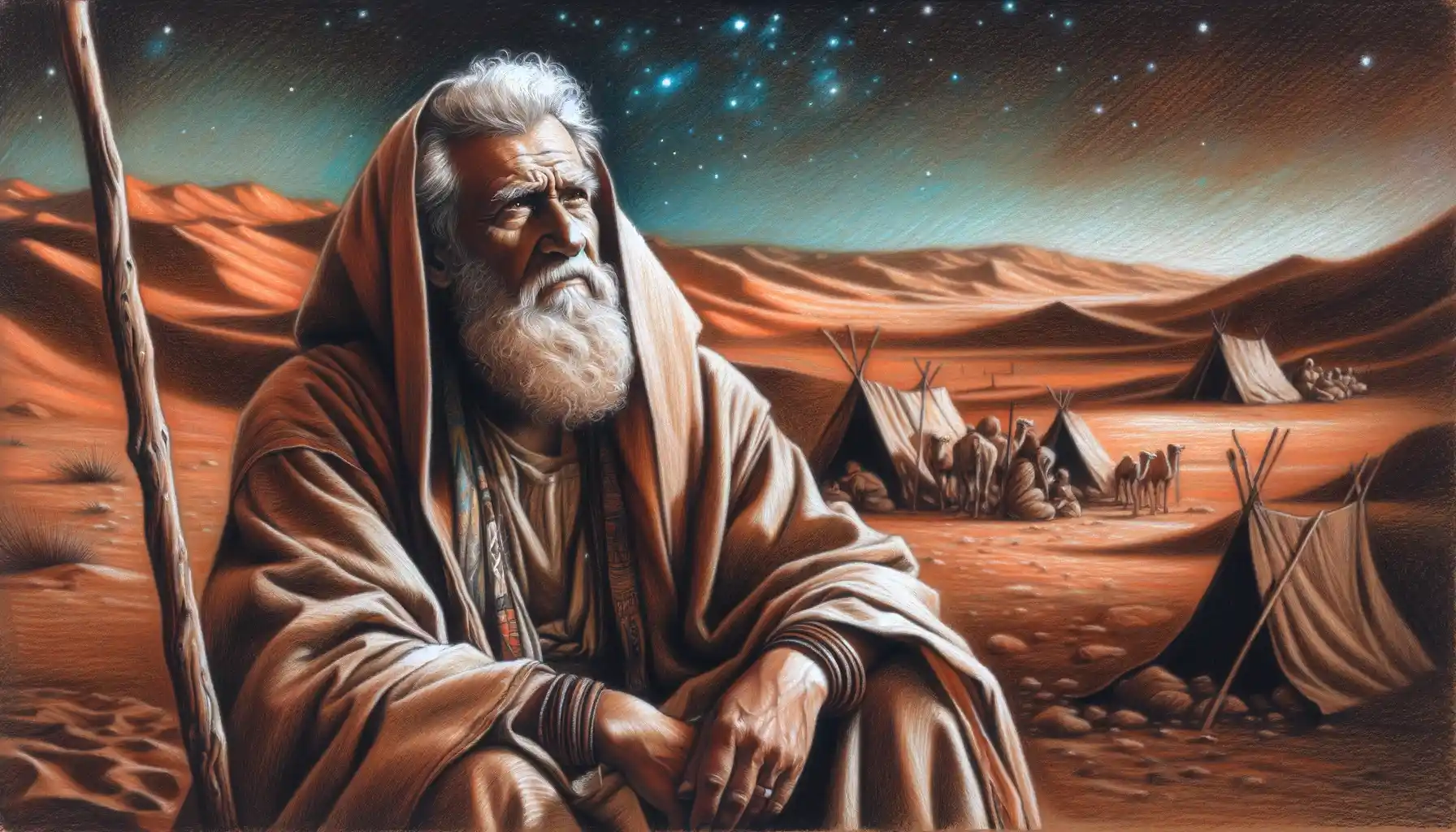
Abraham, Father of the Jewish Nation
Abraham is a foundational figure in Judaism, Christianity, and Islam, renowned for his pivotal role as the progenitor of the Jewish nation and his exemplary faith in God’s promises.
- Original Name – Abraham was originally named Abram before God changed his name to Abraham, which means “father of many nations” (Genesis 17:5).
- Covenant with God – God made a significant covenant with Abraham, promising him descendants as numerous as the stars in the sky and that through him all nations of the earth would be blessed (Genesis 15:5-6, 17:4-8).
- Test of Faith – Abraham’s faith was profoundly tested when God commanded him to sacrifice his son Isaac. He obeyed, but God intervened at the last moment, providing a ram as a substitute sacrifice (Genesis 22:1-18).
- Father of Ishmael and Isaac – Abraham fathered Ishmael with Hagar, Sarah’s maidservant, at Sarah’s behest, and Isaac with his wife Sarah, in fulfillment of God’s promise of an heir (Genesis 16:15, 21:1-3).
- Journey of Faith – Abraham’s journey began in Ur of the Chaldeans, and he traveled to Haran and then to Canaan as directed by God, demonstrating his willingness to follow God’s lead, despite uncertainties (Genesis 12:1-5).
- Intercessor for Sodom and Gomorrah – Abraham showed his compassion and righteousness by bargaining with God to spare the city of Sodom if ten righteous people could be found there (Genesis 18:16-33).
- Legacy and Influence – Abraham is revered as a model of faith in Judaism, Christianity, and Islam. His willingness to trust and obey God marks him as a paragon of faith and obedience.
Contextual Background
Abraham, originally named Abram, is one of the most significant figures in the Hebrew Bible, serving as a patriarch to the Jewish nation and a model of faith for Christians and Muslims. His story, primarily found in Genesis chapters 12 through 25, chronicles his journey from Ur of the Chaldeans to the land of Canaan, his experiences there, and the unfolding of God’s covenant with him.
Theological Insights
- Call and Covenant
- Abraham’s story begins with a divine call to leave his homeland and go to an unspecified land that God would show him. In response to his obedience, God makes several promises to Abraham, including land, descendants, and blessing. This covenant, formalized through various rituals and reiterations, establishes the foundational relationship between God and the people who would descend from Abraham.
- Faith and Righteousness
- Abraham’s faith is highlighted as exemplary in Genesis 15:6, where it is said, “Abram believed the Lord, and he credited it to him as righteousness.” This moment is pivotal and is often referred to in the New Testament as an illustration of faith justifying a person before God (e.g., Romans 4:3).
- Test of Faith: The Binding of Isaac
- Perhaps the most dramatic episode in Abraham’s life is the binding of Isaac (the Akedah), where Abraham demonstrates his willingness to sacrifice his son Isaac in obedience to God’s command. This event not only tests Abraham’s faith but also symbolizes deep themes of sacrifice, obedience, and divine provision, which resonate deeply in Christian theology as foreshadowing Christ’s sacrifice.
- Relationships and Family Dynamics
- Abraham’s relationships with his family—his wife Sarah, his son Ishmael by Hagar, and his son Isaac by Sarah—are complex and fraught with tension. These narratives explore themes of promise, jealousy, and the human struggle with divine promises. The expulsion of Hagar and Ishmael underscores the difficulties in Abraham’s family that mirror the challenges in fulfilling God’s covenant.
- Intercessory Role
- Abraham also acts as an intercessor, particularly in the story of Sodom and Gomorrah, where he negotiates with God to spare the city if ten righteous people can be found. This episode highlights his righteousness and compassion, as well as introducing the idea of a just and merciful God.
Cultural and Historical Impact
- Abrahamic Religions: Abraham is a central figure not only in Judaism but also in Christianity and Islam, earning the title “Father of Many Nations.” In Christianity, he is seen as a prototype of faith in God’s promises, while in Islam, he is considered a prophet and a model of submission to Allah.
- Artistic and Literary Influence: Abraham’s life has inspired countless artworks, literary works, and music, often focusing on key events like his call, his journey, the covenant, and the sacrifice of Isaac. These works explore the complexity of his faith and the dramatic nature of his life’s events.
- Theological and Ethical Discussions: Abraham’s story raises important questions about faith, obedience, the nature of God’s promises, and ethical behavior. Theological discussions often focus on the implications of his faith for understanding the relationship between God and humanity.
Conclusion
Abraham’s narrative is rich with theological, ethical, and spiritual lessons. His life exemplifies unwavering faith, profound obedience, and a deep commitment to God’s will, setting a foundational example for understanding the nature of divine-human relationships and the responsibilities entailed in receiving God’s promises.
Tag:Abraham, Bible, Christianity, Covenant, Faith, father of many nations, Genesis, Isaac, Ishmael, Islam, Judaism, Old Testament, Sacrifice



